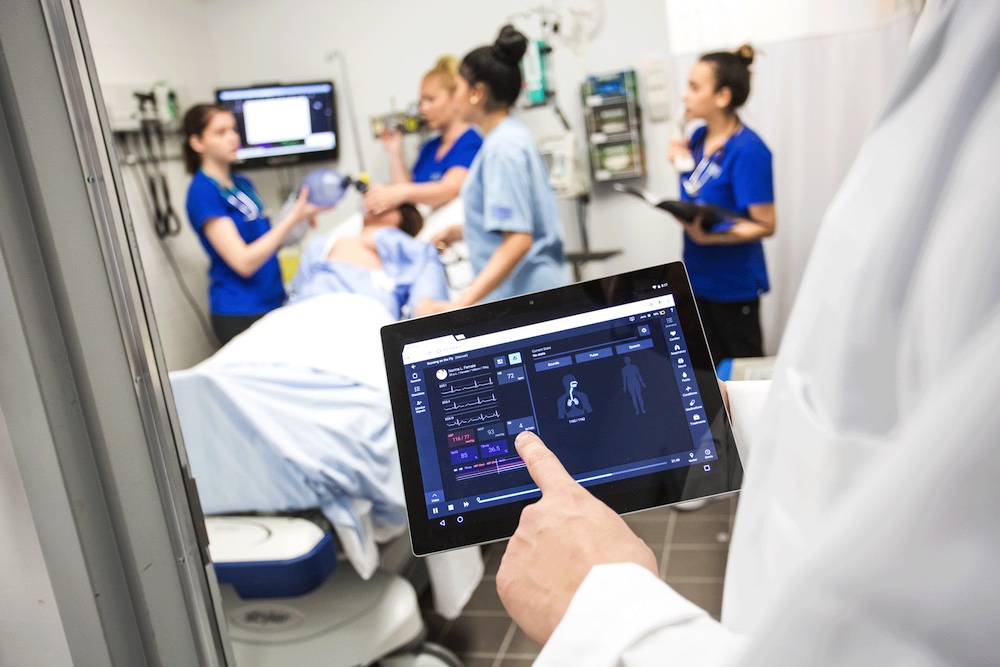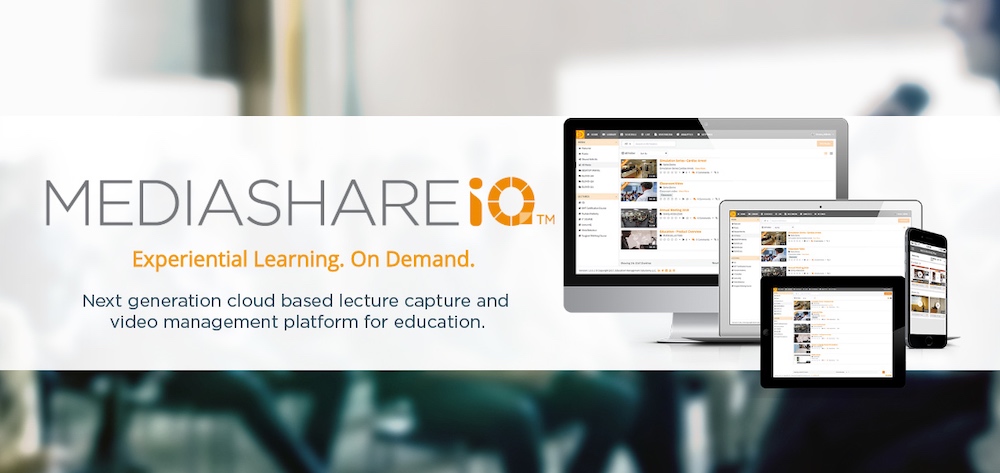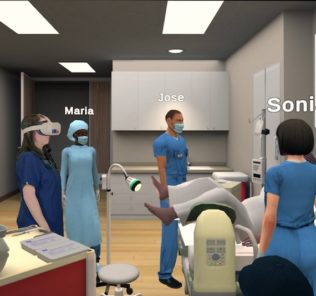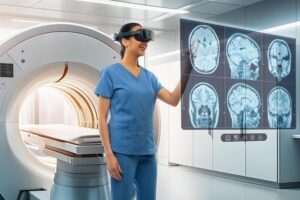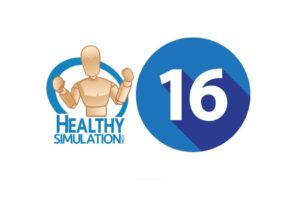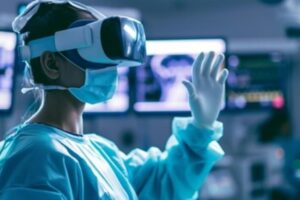Achieve Clinical Simulation Proficiency Faster with CAE Healthcare’s Adaptive Learning
The past year has presented a transformation into new ways of healthcare simulation education—including online learning, distance learning, remote learning and hybrid learning, with new industry terms like “telesimulation” also entering the lexicon. Supporting this transition, CAE Healthcare believes that learners should still have the flexibility to work at their own pace while achieving a personalized level of impactful learning. For this reason, the medical simulation company has uniquely facilitated adaptive healthcare simulation education in clinical environments with a learning management system that houses adaptive content, powered by artificial intelligence. Here we take a look at how CAE Healthcare’s adaptive learning technologies can help healthcare educators faster achieve clinical simulation proficiency.
For many companies, a myriad technology options, such as WebEx, Zoom and Microsoft Teams, have helped make the delivery of online and distance education readily accessible. However, a 2015 report by Microsoft Canada noted that an increasingly digital lifestyle can decrease the average attention span. When this occurs, adaptive learning can step in to provide learners with a customized educational healthcare simulation experience that responds to specific behaviors and answers.
What is adaptive learning in healthcare simulation? According to the Healthcare Simulation Dictionary—Second Edition, “Adaptive learning incorporates a wide range of technologies and techniques that observes participants and adjusts the learning experience on demand to meet the unique needs of the participants and facilitate the individual/team members in meeting identified objectives.”
Sponsored Content:
As clinical simulation education has evolved, so has adaptive learning technology. While the employment of adaptive learning doesn’t replace healthcare simulation educators, the educational method rather shifts the model from teacher-centric to learner-centric. CAE Healthcare combines a unique delivery format, artificial intelligence (AI) and customized medical simulation training to guide clinical learners toward success.
Benefits of adaptive learning to educators and learners include that this method of education can save up to 50% of classroom time, create lower training costs and help learners to recognize and address gaps in knowledge. Adaptive learning in healthcare simulation can also create an environment where leaders trust that learners are equipped with the medical knowledge they need to perform in the field.
Further, adaptive learning can drive how learners they retain and metabolize information. This leads to improved cognition and application, as well as less time needed to achieve proficiency. Experiences involving adaptive learning can quickly determine what learners already know, and focuses on presenting unfamiliar material to achieve new knowledge, while simultaneously helping to decrease boredom and frustration.
According to CAE Healthcare, adaptive learning does not only work in theory—but the educational method has shown to deliver results in practice. For example, a research paper by the Massachusetts General Hospital, Harvard Medical School and NEJM Group found that students taking a certification exam after an adaptive learning experience had a 95% chance of passing in their first attempt, compared to the national average of 89%. Nursing students who participate in adaptive quizzing in preparation for the NCLEX exam have achieved higher passing rates and reduced test anxiety as well. Also, first-year anesthesiology residents using adaptive learning were shown to diagnose transesophageal echocardiography more accurately.
Sponsored Content:
Experience CAE Healthcare’s Adaptive Learning Solutions
CAE Healthcare creates adaptive learning environments that are individualized and leverage interactive and adaptive software, giving clinicians the ability to learn anywhere, at any time. In 2020, in collaboration with Area9 Lyceum—a global leader in adaptive learning—CAE Healthcare designed a new learning management system, which houses adaptive content, powered by AI.
The company’s adaptive learning content helps clinicians with varied levels of exposure and ventilator management to achieve required competencies quickly and efficiently for better patient outcomes during the COVID-19 pandemic, and beyond. Focused on self-directed learning, CAE Healthcare’s adaptive learning content allows learners to register and train at their own pace and repeat healthcare simulation modules as needed. The learning style also enables users to progress through the content in the order they choose, while providing learners with the ability to self-identify on current knowledge, as a beginner or an expert—yet has the ability to also uncover unconscious incompetence.
CAE Healthcare’s healthcare simulation content is presented in an interactive learning environment that provides real-time feedback and performance monitoring. The adaptive learning experience includes a virtual coach who provides text and audio information as learners view content. CAE Healthcare’s adaptive leaning model also allows learners to make mistakes and pursue misconceptions, closely mimicking real-world cognitive situations.
Being able to track progress toward completion of course objectives is another benefit of the CAE Healthcare clinical simulation learning method.
All CAE Healthcare adaptive content is regularly updated to ensure ongoing compliance with global developments in medicine, and the content is approved for continuing education under U.S. standards. Current course offerings include:
- COVID-19 Ventilator Reskilling: This content helps healthcare providers in the acute care setting improve knowledge and competence in mechanical ventilation skills.
- Ventilator Management for the COVID-19 Patient: This content teaches clinical professionals how to manage mechanical ventilation for a COVID-19 patient, covering challenges and mechanical ventilation types that should be considered.
- Basic Mechanical Ventilation: This content addresses the mechanical ventilation modes (compliance, I:E ratio, oxygenation and ventilation) necessary to manage intubated patients in various disease states.
- Advanced Mechanical Ventilation: This content helps clinical professionals understand the theories and principles that drive the usage of complex ventilatory modes, and how sedation impacts mechanical ventilation.
CAE Healthcare is focused on leveraging digital learning solutions that provide real-time data, providing educators the information they need to adjust instruction and meet the unique needs of each learner. These learners can experience the benefits of adaptive learning in healthcare simulation firsthand through enrollment in a CAE Healthcare course today. All course content is available for one year from date of purchase.
More About CAE Healthcare
CAE Healthcare offers integrated education and training solutions to healthcare students and clinical professionals across the professional life cycle, allowing them to develop practical experience in simulated environments before treating patients. CAE Healthcare’s full spectrum of simulation solutions includes surgical and imaging simulation, curriculum, the CAE LearningSpace audiovisual and center management platform and highly realistic adult, pediatric and baby patient simulators.
The Sarasota-based company (with CAE Healthcare headquarters in Montreal) also supports medical simulation through regional, national and international HPSN meetings, sponsoring new simulation-based conferences, online tutorials, mentors, videos and forums boards. As well, CAE Healthcare also has a full range of trauma-based and moulage products to directly support first responder and military para-rescue programs sold under the name METI FX. Today, hospitals, medical schools, nursing schools, defense forces and societies in more than 80 countries use our training solutions to make healthcare safer.
Learn More About CAE Healthcare!
Today’s article was guest authored by Kim Cartlidge, Manager of Creative Services and Communications at CAE Healthcare.
Have a story to share with the global healthcare simulation community? Submit your simulation news and resources here!
Sponsored Content:



